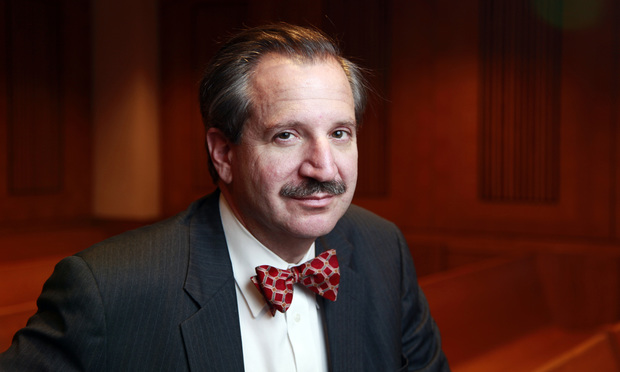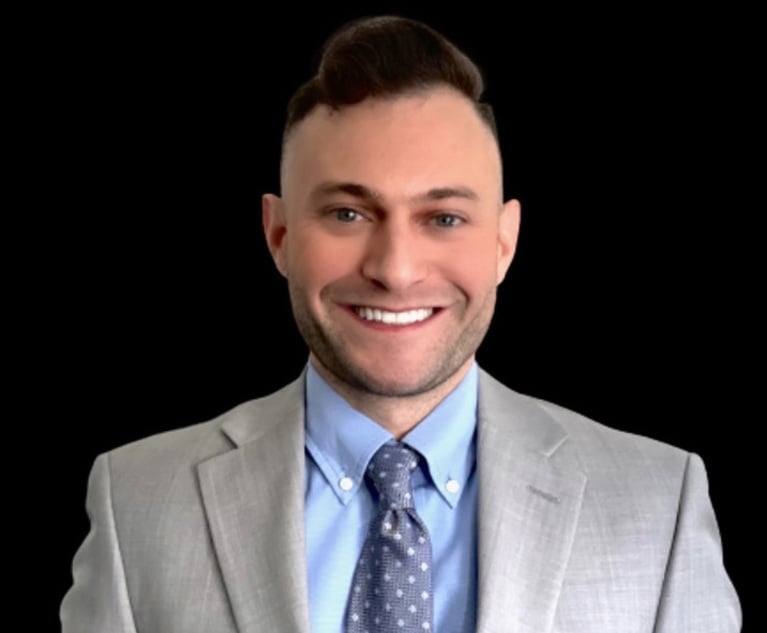Judge Finds UnitedHealthcare Coverage Guidelines Over-Emphasized Acute Problems, 'Cost-Cutting'
A federal judge in San Francisco has found that an affiliate of the nation's largest health insurer breached its fiduciary duty to policyholders by following coverage guidelines for mental health problem and substance abuse issues that resulted "in a significantly narrower scope of coverage than is consistent with generally accepted standards of care."
March 05, 2019 at 06:02 PM
4 minute read
 U.S. Magistrate Judge Joseph Spero, Northern District of California (Photo: Jason Doiy/ALM)
U.S. Magistrate Judge Joseph Spero, Northern District of California (Photo: Jason Doiy/ALM)
A federal judge in San Francisco has found that an affiliate of UnitedHealthcare, the nation's largest health insurer, breached its fiduciary duty to policyholders by following guidelines that emphasized cost-savings and addressing acute problems rather than treating underlying mental health and substance abuse issues.
U.S. Magistrate Judge Joseph Spero of the Northern District of California issued a 106-page ruling Tuesday finding that the guidelines that United Behavioral Health used when making coverage decisions in cases of mental illness and substance abuse didn't provide for generally accepted standards of care outlined in the plaintiffs' policies.
“In every version of the Guidelines in the class period, and at every level of care that is at issue in this case, there is an excessive emphasis on addressing acute symptoms and stabilizing crises while ignoring the effective treatment of members' underlying conditions,” Spero wrote. Although the specific guidelines used to make a coverage decision varied within the class period from 2012 to 2017, Spero concluded that emphasis was “pervasive and result[ed] in a significantly narrower scope of coverage than is consistent with generally accepted standards of care.”
The decision is a major victory for lawyers at Zuckerman Spaeder and Psych-Appeal Inc., a law firm based in West Hollywood, California, that focuses on mental health insurance coverage.
United Healthcare is represented by a team at Crowell & Moring. Partner Jennifer Romano passed along a request for comment to a company spokeswoman.
“We look forward to demonstrating in the next phase of this case how our members received appropriate care,” said UnitedHealtcare communications director Maria Gordon Shydlo. “We remain committed to providing our members with access to the right care for the treatment of mental health conditions and substance use disorders.”
Spero's decision comes after he held a 10-day bench trial in October 2017 to determine whether UBH's coverage guidelines led to coverage determinations that were more restrictive than those generally accepted. Spero found that the evidence at trial showed UBH's emphasis on cost-cutting “tainted the process, causing UBH to make decisions about Guidelines based as much or more on its own bottom line as on the interests of the plan members, to whom it owes a fiduciary duty.”
In particular, the judge pointed out that the company decided against adopting the widely used clinical criteria issued by the American Society of Addiction Medicine even though all of the company's own clinicians recommended adoption. “The only reason UBH declined to adopt the ASAM Criteria was that its Finance Department wouldn't sign off on the change,” Spero wrote. “This evidence establishes that UBH has a conflict of interest that has had a significant impact on decision-making as to the development of the Guidelines.”
Meiram Bendat of Psych-Appeal, who aside from being a lawyer is a clinician with a background in mental health, said the case will now move from the liability phase to the remedy phase. He and his co-counsel at Zuckerman Spaeder were still analyzing the court's decision and considering the next step Tuesday afternoon.
“Up until this lawsuit, UBH denied patients access to care on the false premise that crisis should be the benchmark for coverage,” Bendat said. “The ruling today sends a clear message that insurers need to adhere to the generally accepted professional standards when making coverage decisions.”
In a statement, Zuckerman Spaeder partner D. Brian Hufford, who heads the firm's health care practice, called the decision “a monumental win for mental health patients.”
“For the first time, an insurer was forced to stand trial for denying thousands of mental health and substance use disorder claims, and the court delivered a strong message: what you're doing is harmful and illegal, and it must end,” he said.
This content has been archived. It is available through our partners, LexisNexis® and Bloomberg Law.
To view this content, please continue to their sites.
Not a Lexis Subscriber?
Subscribe Now
Not a Bloomberg Law Subscriber?
Subscribe Now
NOT FOR REPRINT
© 2025 ALM Global, LLC, All Rights Reserved. Request academic re-use from www.copyright.com. All other uses, submit a request to [email protected]. For more information visit Asset & Logo Licensing.
You Might Like
View All
'Pull Back the Curtain': Ex-NFL Players Seek Discovery in Lawsuit Over League's Disability Plan

'Be Comfortable Being Uncomfortable': Pearls of Wisdom From 2024 GC Q&As


Insurers Dodge Sherwin-Williams' Claim for $102M Lead Paint Abatement Payment, State High Court Rules
Trending Stories
Who Got The Work
J. Brugh Lower of Gibbons has entered an appearance for industrial equipment supplier Devco Corporation in a pending trademark infringement lawsuit. The suit, accusing the defendant of selling knock-off Graco products, was filed Dec. 18 in New Jersey District Court by Rivkin Radler on behalf of Graco Inc. and Graco Minnesota. The case, assigned to U.S. District Judge Zahid N. Quraishi, is 3:24-cv-11294, Graco Inc. et al v. Devco Corporation.
Who Got The Work
Rebecca Maller-Stein and Kent A. Yalowitz of Arnold & Porter Kaye Scholer have entered their appearances for Hanaco Venture Capital and its executives, Lior Prosor and David Frankel, in a pending securities lawsuit. The action, filed on Dec. 24 in New York Southern District Court by Zell, Aron & Co. on behalf of Goldeneye Advisors, accuses the defendants of negligently and fraudulently managing the plaintiff's $1 million investment. The case, assigned to U.S. District Judge Vernon S. Broderick, is 1:24-cv-09918, Goldeneye Advisors, LLC v. Hanaco Venture Capital, Ltd. et al.
Who Got The Work
Attorneys from A&O Shearman has stepped in as defense counsel for Toronto-Dominion Bank and other defendants in a pending securities class action. The suit, filed Dec. 11 in New York Southern District Court by Bleichmar Fonti & Auld, accuses the defendants of concealing the bank's 'pervasive' deficiencies in regards to its compliance with the Bank Secrecy Act and the quality of its anti-money laundering controls. The case, assigned to U.S. District Judge Arun Subramanian, is 1:24-cv-09445, Gonzalez v. The Toronto-Dominion Bank et al.
Who Got The Work
Crown Castle International, a Pennsylvania company providing shared communications infrastructure, has turned to Luke D. Wolf of Gordon Rees Scully Mansukhani to fend off a pending breach-of-contract lawsuit. The court action, filed Nov. 25 in Michigan Eastern District Court by Hooper Hathaway PC on behalf of The Town Residences LLC, accuses Crown Castle of failing to transfer approximately $30,000 in utility payments from T-Mobile in breach of a roof-top lease and assignment agreement. The case, assigned to U.S. District Judge Susan K. Declercq, is 2:24-cv-13131, The Town Residences LLC v. T-Mobile US, Inc. et al.
Who Got The Work
Wilfred P. Coronato and Daniel M. Schwartz of McCarter & English have stepped in as defense counsel to Electrolux Home Products Inc. in a pending product liability lawsuit. The court action, filed Nov. 26 in New York Eastern District Court by Poulos Lopiccolo PC and Nagel Rice LLP on behalf of David Stern, alleges that the defendant's refrigerators’ drawers and shelving repeatedly break and fall apart within months after purchase. The case, assigned to U.S. District Judge Joan M. Azrack, is 2:24-cv-08204, Stern v. Electrolux Home Products, Inc.
Featured Firms
Law Offices of Gary Martin Hays & Associates, P.C.
(470) 294-1674
Law Offices of Mark E. Salomone
(857) 444-6468
Smith & Hassler
(713) 739-1250






